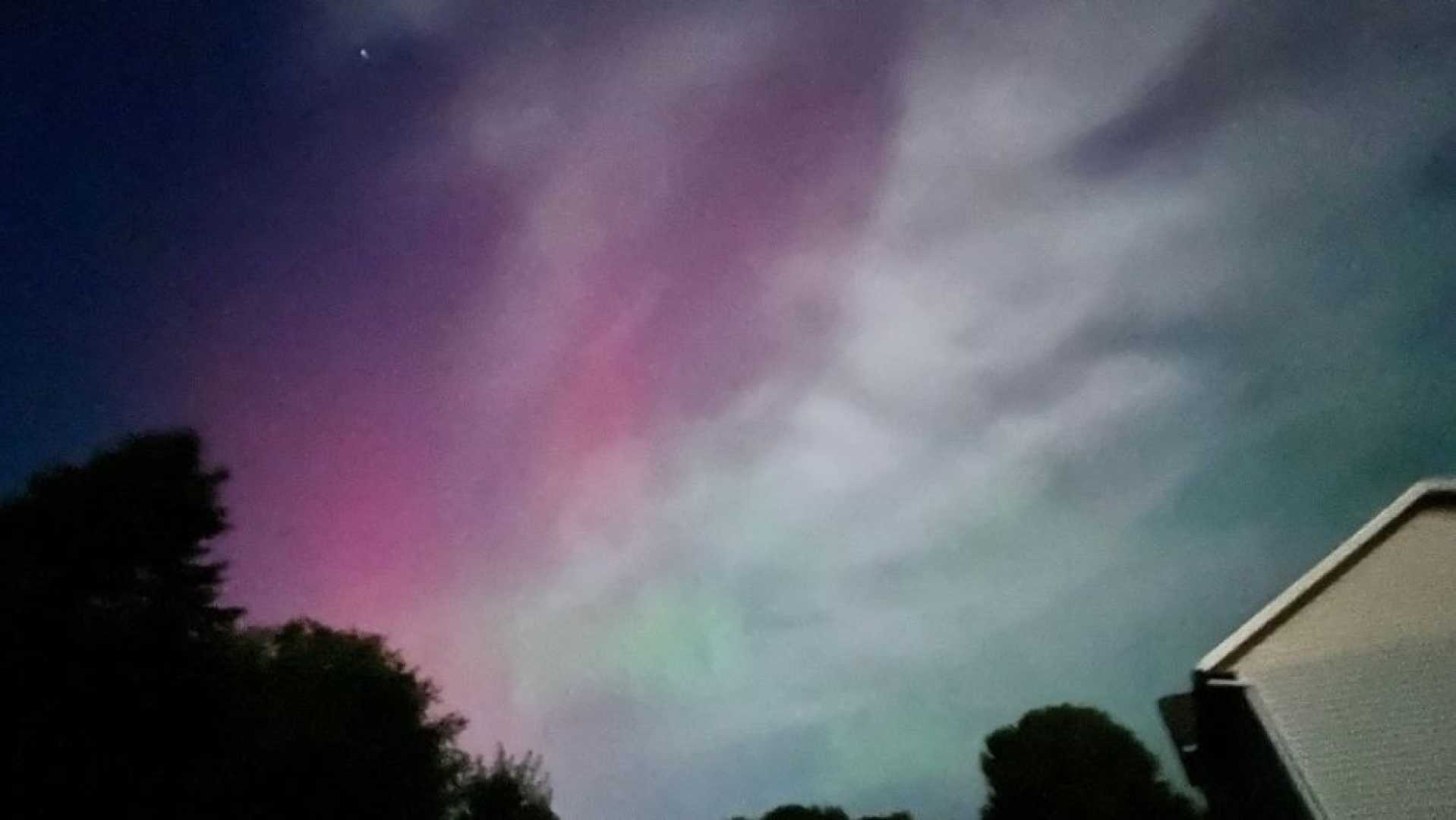News
Mid-Michigan Anticipates Northern Lights Due to Solar Storm

If weather conditions remain favorable, residents of mid-Michigan could witness an impressive display of the aurora borealis on Thursday and Friday nights. The National Oceanic and Atmospheric Administration (NOAA) has announced a significant solar storm, which could extend the visibility of the northern lights much further south than usual.
This phenomenon follows a large solar storm earlier in the week, during which the sun emitted a burst of radiation toward Earth. This radiation is currently interacting with atmospheric particles, resulting in energy release and a display of lights known as the aurora borealis. The intensity of solar storms is measured using a “Kp” index, where a reading of 3 indicates a quiet aurora, typically only visible as far south as the Lake Superior basin or southern Canada. However, a Kp index of 7 or higher brings the lights within view of mid-Michigan, with Thursday night predictions peaking at a Kp of 8.33, while Friday’s forecast is 8.0.
NOAA cautions that the solar storm could potentially impact a range of electrical and electronic systems on Earth. “Possible widespread voltage control problems and some protective systems will mistakenly trip out key assets from the grid,” NOAA warned. The International Space Station and other spacecraft might also face surface charging and tracking issues, necessitating corrections for orientation problems. Additionally, terrestrial radio and satellite navigation may encounter disruptions.
On the meteorological front, the National Weather Service‘s Grand Rapids office anticipates that high pressure will maintain mostly clear conditions through Friday. However, a cold front is expected to arrive Friday night, initiating a cooling trend along with periods of showers.
The optimal time for northern lights viewing generally falls within an hour or two of midnight, according to NOAA. “The hours of active aurora expand towards evening and morning as the level of geomagnetic activity increases,” NOAA explained. Auroras tend to be more vivid around the spring and fall equinoxes.
Mid-Michigan residents seeking darker skies for better viewing can head to Lake Hudson Recreation Area in Lenawee County, Negwegon State Park in Alcona County, or Port Crescent State Park in Huron County. Additionally, Rockport Recreation Area and Thompson’s Harbor State Park, along with Wilderness State Park in Emmet County, lie well away from city lights. Headlands Dark Sky Park in Emmet County, Keweenaw Dark Sky Park in Keweenaw County, and Dr. T.K. Lawless Park in Cass County bear the designation of international dark sky parks, while Beaver Island State Wildlife Research Area serves as an international dark sky sanctuary.












